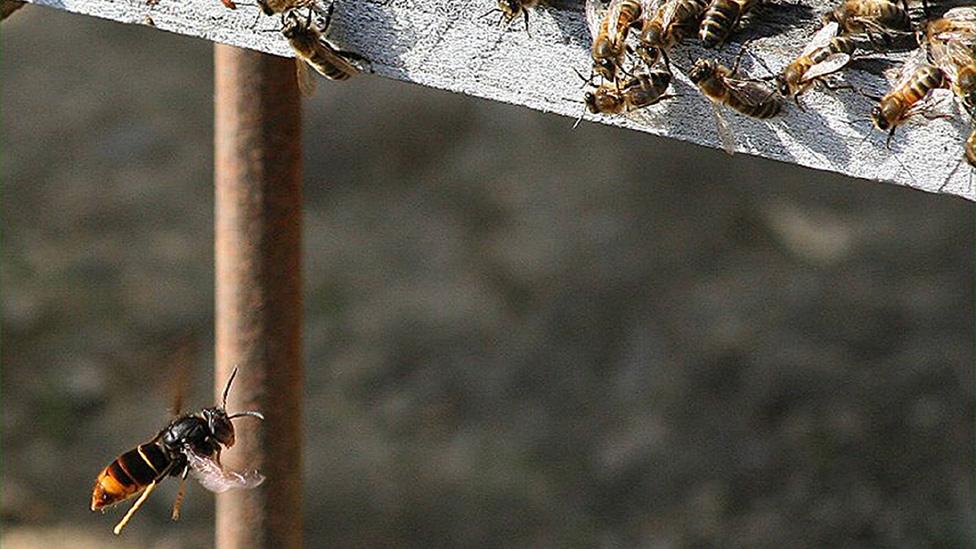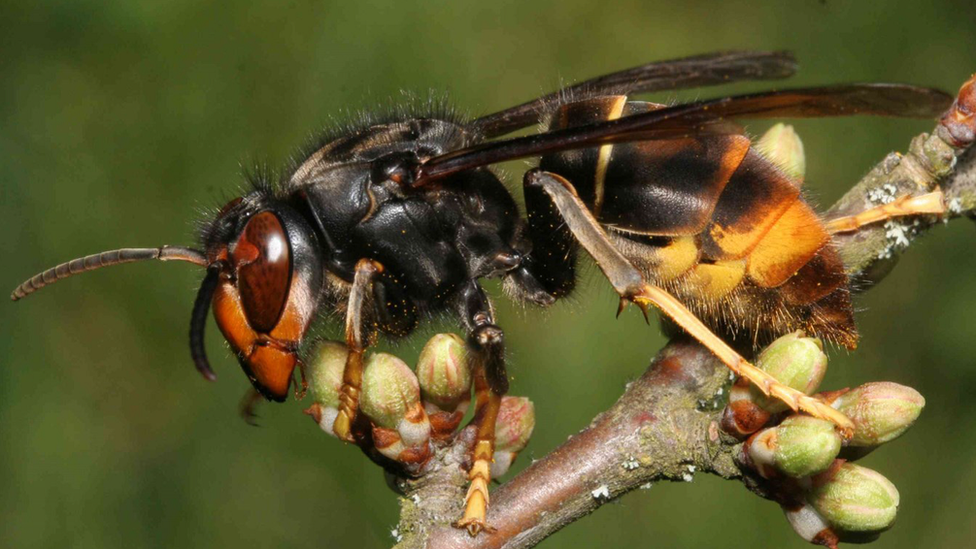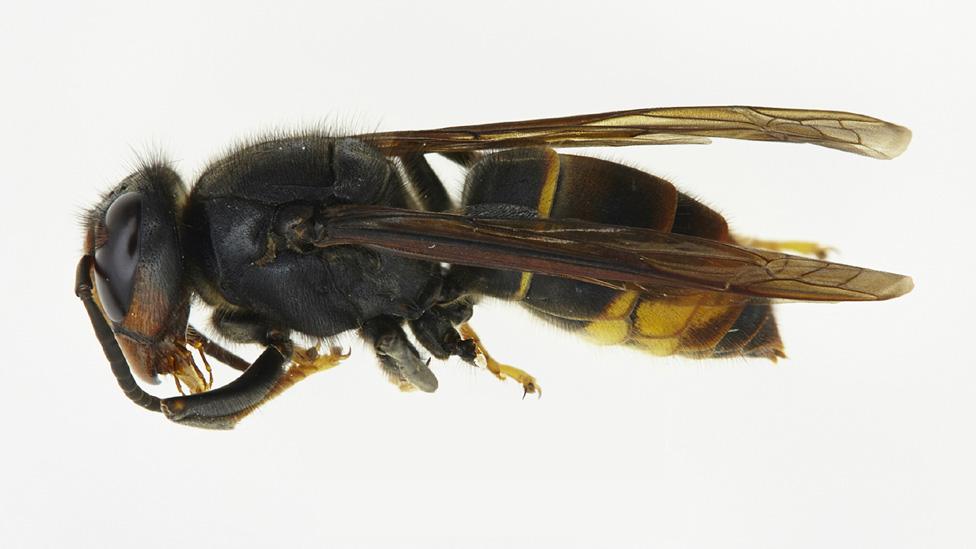Asian hornet with electronic tag leads scientists to nest
- Published

The tagged hornet led scientists to a nest high up in a tree
A hive of bee-killing Asian hornets has been destroyed after scientists electronically tagged one of the insects to discover the nest's location.
The radio tag was attached to a hornet feeding on fallen apples near Brockenhurst, Hampshire, in September.
It led researchers to a woodland nest, which was later eradicated.
The University of Exeter said it was the first time the technique had been used to kill hornets on UK mainland.

Scientists caught and tagged the hornet near Brockenhurst
Dr Peter Kennedy from the university, which invented the tags to stop the spread of Asian hornets, said his team tracked the insect to an area 500m (1,640ft) from the original sighting.
"We were able to... reduce the likely nest location to one of three trees, within a couple of hours," he said.
He said the nest, high in the leaf canopy, was "only visible from one or two narrow angles".

The hornets hover near hives and attack and eat the bees
The invasive predators, which eat honeybees and other pollinators, were first sighted in England in 2016 and have been found 12 times in total.
In September, there were seven confirmed Asian hornet sightings, external, in Cornwall, Hampshire, Surrey and Yorkshire.
Following the latest finds, the Centre for Ecology and Hydrology (CEH) said there was no evidence of hornets overwintering and spreading across the UK.

Asian hornet (Vespa velutina)
Asian hornets: What's all the buzz about vespa velutina?
Queens are up to 3cm (1.2in) in length, while workers are up to 2.5cm (1in)
The hornets have a dark brown or black velvety body, bordered with a fine yellow band
They nest openly in trees and hedges, unlike European hornets which often nest in cavities
They hover near hives to snatch worker bees, macerate them into a pellet and take them back to their colony
Their sting is no more potent than the European hornet's
Source: National Bee Unit / University of Exeter/ Centre for Ecology and Hydrology

Dr Kennedy said some previous cases had been attributed to insects arriving with imported goods.
Asian hornet nests have also been found across the Channel Islands.
The government has appealed for vigilance "to stop this insect establishing in the UK".
- Published5 October 2018

- Published12 September 2018

- Published11 September 2018

- Published4 September 2018

- Published4 July 2018
